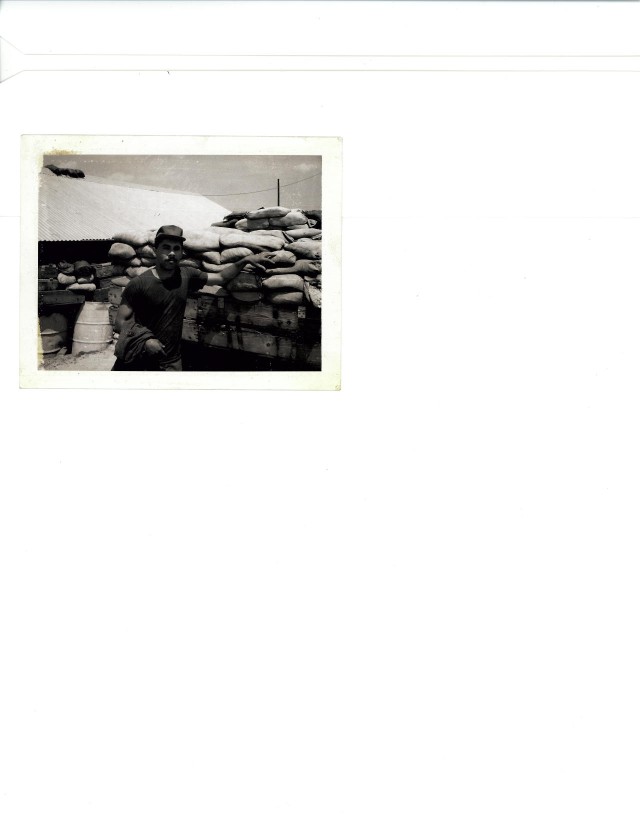WASHINGTON -- Paging through the Harris family photo album, three generations of war fighters look back. Combined, the pictures not only tell the story of one family's legacy of service to their country, but also give a glimpse of how the opportunities and experiences available to service members of color have changed in the last 60 years.
On July 26, 1948, President Harry S. Truman issued Executive Order 9981 which called for the desegregation of the nation's armed forces and opened the door for a more diverse leadership base within the ranks of the military. At the time, George Harris, Sr. and William Harris were sergeants in the Army. Both served in WWII and knew the order represented opportunity for African Americans overall, but also knew it brought possibilities for future generations. Sixty years later, their grandson and grandnephew, Captain George Harris, III, is an officer in the Army. A third generation Soldier, his family's story provides a very personal timeline for the evolution of integration within the Army and military overall.
Harris' father, grandfathers, great uncle, father-in-law, stepfather-in-law and brother-in-law have all served in uniform. Collectively, they have seen combat in World War II, Vietnam, the Gulf Wars and Afghanistan. Among them, they boast one Silver Star -presented to Harris' maternal grandfather for his role in the Battle of Iwo Jima - and a Bronze Star Medal that Harris received for his service in Afghanistan.
For Harris, his family's experience is more than a historical record. Their service, he said, "paved the way" for the life he currently leads as an African American Soldier and officer in the Army.
"Just a generation ago, I could not have commanded white Soldiers," Harris said, putting into perspective just how different things are from the years when his grandfathers and father served.
Harris' father, who retired as a Master Sgt. after 29 years of active and reserve duty, was the one who encouraged his son to take the officer track when he made the decision to join the Army after attending college on an ROTC scholarship. Though Harris said neither of his parents pushed him toward joining the service, he took their advice, and other pieces of wisdom imparted by his father over the years, very seriously.
He remembers, for instance, when his father caught him misbehaving as a boy and wrote a simple message on a paper folder he placed in front of his son: "D-M-P-U," it said, which was shorthand for, "Discipline makes punishment unnecessary."
"I still have that folder in my office," Harris said. In short, the phrase means that if you have the self-discipline to live by a set of morals and principles, you will not need to be punished, rather, you will take it upon yourself to admit and address any wrong you have committed and rectify the situation.
Harris has stayed true to this lesson and others his father has taught him, but acknowledges that he applies these values to a very different world. He knows that African American Soldiers of his grandfather's and father's generations faced discrimination when it came to achieving promotions or securing certain assignments, and does not take for granted the fact that the limitless opportunities he had open to him upon joining the Army were not as accessible to his family before him.
Today, Harris is proud to serve in a diverse Army with units made up of Soldiers whose ethnic backgrounds are as varied as the unique skill sets they possess. He believes this diversity is an essential part of what makes the Army so strong.
"As war fighters, diversity is even more important now because the nature of warfare is faster and constantly evolving," Harris said. "We need the best and brightest at the helm to bring new tactics to the battlefield, and it doesn't matter what they look like as long as they are willing to do what it takes to protect our country."
As Harris reflected on the 60-year milestone the Army is commemorating this weekend, he expressed awe at the changes and evolutions that have taken place since that order was issued. He also emphasized that an anniversary like this one should also be a time to look forward, a moment for the Army and the nation to talk about new ways to cultivate diverse and inclusive environments.
"A military where everyone thinks alike is a weak one," he said. "Diversity makes a stronger Army because you draw together men and women from all walks of life. These varied thinkers are capable of ideas and decisions that will outsmart the enemy and move the Army into the future."
This article was contributed by the Department of the Army's Operation Tribute to Freedom program which shares the stories of Soldiers returning from Iraq and Afghanistan.




Social Sharing